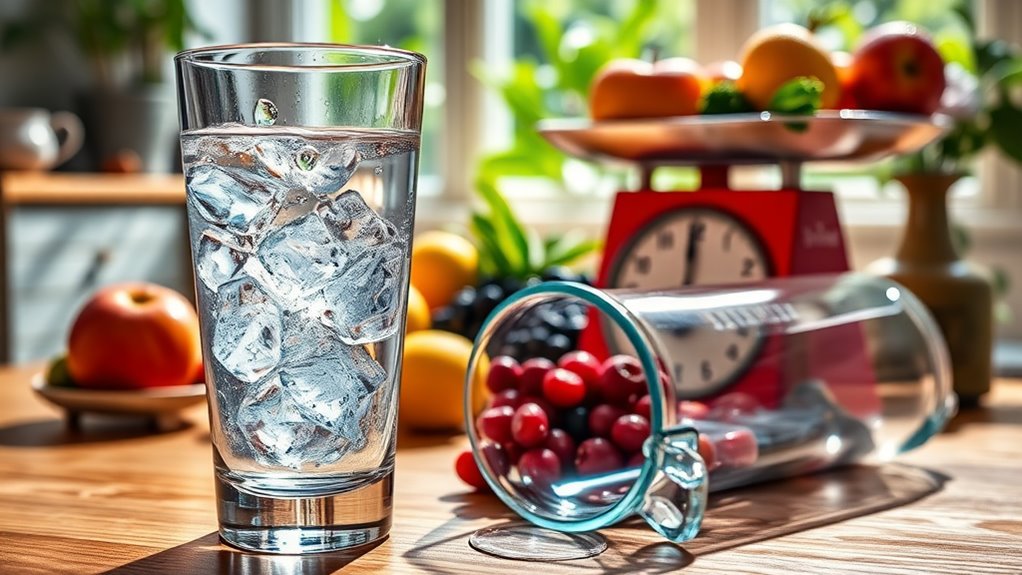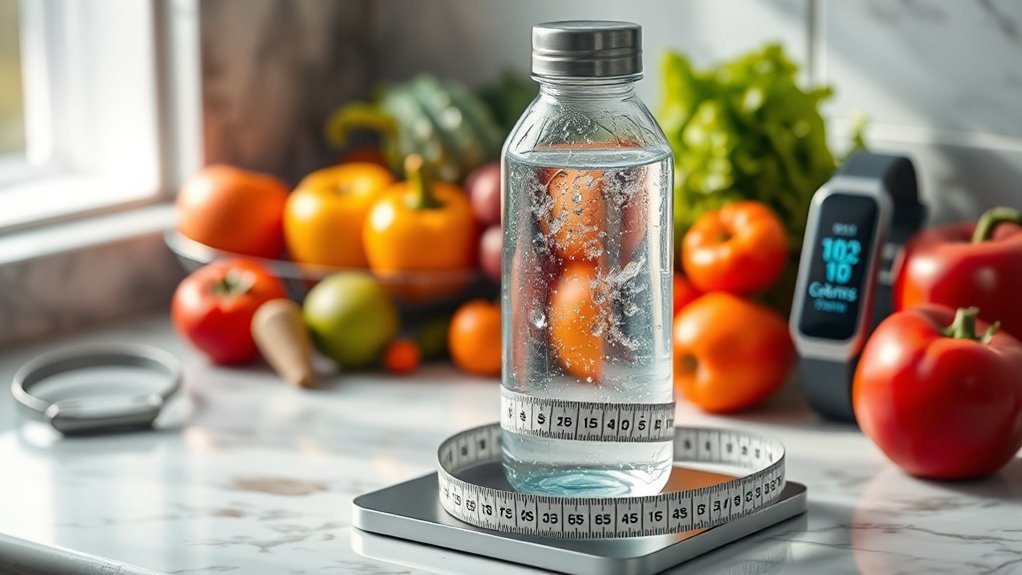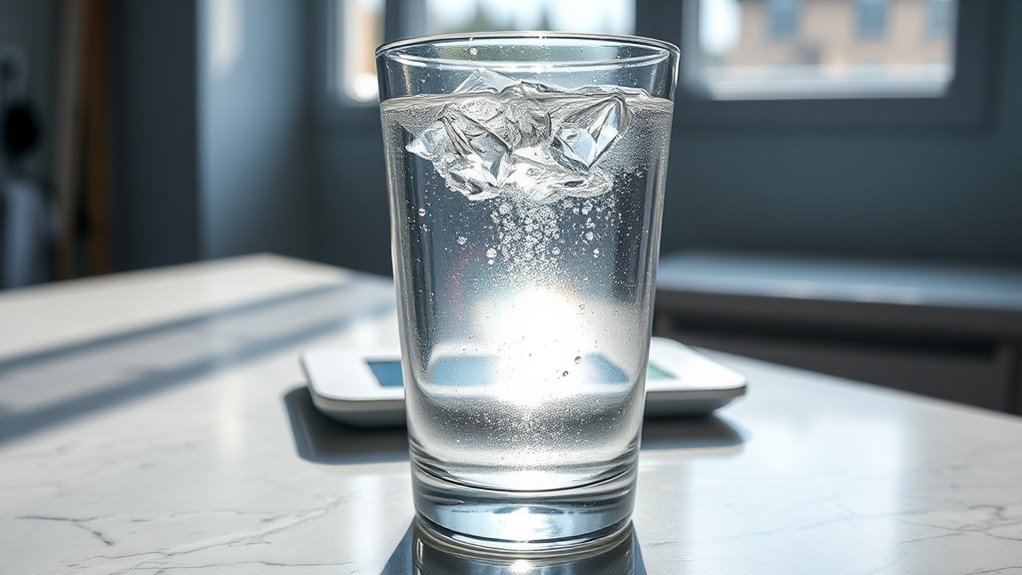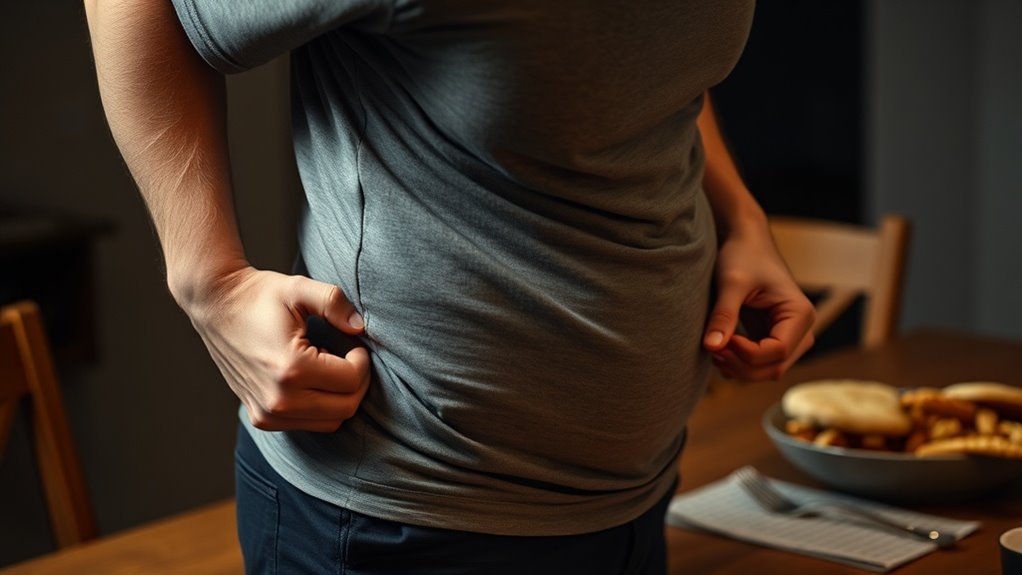How Much Water You Really Need for Weight Loss-It’s More Than You Think
To achieve effective weight loss, you need more water than you might think. Proper hydration boosts your metabolism and fat-burning abilities. Aim for about half your body weight in ounces daily, adjusting for activity levels and climate. Dehydration can slow your metabolism and increase cravings, making weight loss harder. Incorporating water-rich foods can enhance your hydration, too. Explore how to find your optimal water intake and the best times to hydrate for maximum results.
The Role of Water in Metabolism
While you’re focusing on weight loss, it’s essential to understand the critical role water plays in your metabolism.
Adequate water intake for fat loss enhances your body’s ability to burn calories efficiently. Studies show that staying hydrated can increase your resting metabolic rate, helping you shed pounds faster. Proper hydration also plays a crucial role in efficient fat burning, which is vital for achieving your weight loss goals.
Aim for consistent water consumption to support your metabolic processes and achieve your weight loss goals.
How Dehydration Affects Weight Loss
Dehydration can significantly hinder your weight loss efforts, as even mild fluid loss may disrupt your body’s ability to burn fat effectively.
When you’re dehydrated, your metabolism slows down, and cravings can intensify. You’re also more prone to fatigue, making workouts feel more challenging. Staying adequately hydrated is crucial for maintaining energy levels and supporting overall metabolic processes during your weight loss journey. Additionally, proper hydration aids in efficient fat metabolism, which can enhance your weight loss results.
Finding Your Optimal Water Intake
To achieve your weight loss goals, understanding your optimal water intake is essential. A general guideline suggests drinking half your body weight in ounces daily.
However, factors like activity level, climate, and diet can influence your needs. Use thirst as a guide, and monitor your urine color—clear or light yellow indicates proper hydration.
Adjust intake based on these indicators for best results. Additionally, proper hydration can boost metabolism and enhance energy levels, supporting your overall weight loss efforts.
Water-Rich Foods for Enhanced Hydration
Incorporating water-rich foods into your diet can significantly boost your hydration levels and support your weight loss efforts.
Fruits like watermelon, cucumbers, and strawberries, along with vegetables like lettuce and zucchini, are excellent choices.
These foods not only hydrate but also provide essential nutrients and fiber, making you feel fuller longer.
Embrace them to enhance your overall hydration and weight management journey. Additionally, these foods can contribute to improved body function and help you maintain optimal hydration levels.
Timing Your Water Consumption
To maximize your weight loss efforts, timing your water intake is essential. You’ll want to focus on optimal times to hydrate, like drinking before workouts to boost performance, and being mindful of how much you consume right after meals. Drinking water 30 minutes before meals can enhance the feeling of fullness and aid in portion control. Understanding these habits can help you stay hydrated while supporting your weight loss goals.
Optimal Times to Hydrate
Knowing when to hydrate can make a significant difference in your weight loss journey. Drinking water at strategic times enhances metabolism and controls hunger. Here’s a quick guide:
| Time to Hydrate | Benefits |
|---|---|
| Upon waking | Kick-starts metabolism |
| Before meals | Reduces appetite |
| Mid-afternoon | Boosts energy levels |
| Before sleep | Supports recovery overnight |
Pre-Workout Water Intake
How can you enhance your workout performance and support your weight loss goals with just the right amount of water?
Start hydrating about 30 minutes before your workout. Aim for 17-20 ounces to ensure optimal hydration levels. This pre-workout water intake can improve your endurance, strength, and overall exercise efficiency.
Post-Meal Drinking Habits
While it might seem intuitive to sip water whenever you feel thirsty, timing your water consumption after meals can significantly impact your digestion and weight loss efforts.
Drinking water too soon after eating can dilute stomach acids, hindering digestion. Instead, wait about 30 minutes post-meal.
This allows your body to absorb nutrients efficiently, supporting your weight loss journey effectively.
Common Myths About Water and Weight Loss
Although many people believe that simply drinking more water will lead to significant weight loss, several myths can cloud your understanding of how hydration really impacts your body.
For instance, it’s a misconception that water alone can burn fat or that you won’t gain weight if you hydrate excessively.
In reality, balance is vital; hydration supports metabolism but won’t replace a healthy diet and exercise.





